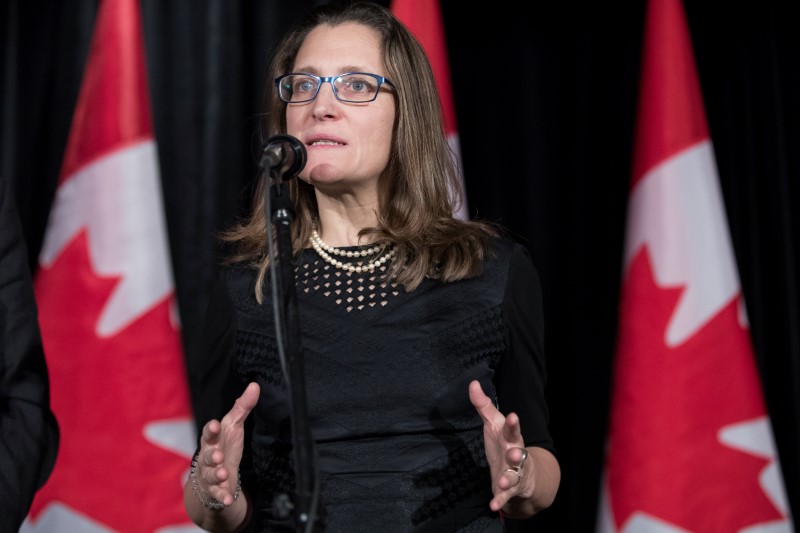By Ketki Saxena
Investing.com – The Canadian federal government is set to release its 2023 budget tomorrow in Ottawa at 4:00 p.m. ET.
Finance Minister Chrystia Freeland has noted that the budget will "exercise fiscal restraint" to avoid adding ““fuel on the fire of inflation” as the Bank of Canada is battling to bring consumer prices back to their 2% target.
However, targeted affordability measures are expected, including a grocery rebate. The budget is largely expected to focus on the clean energy sector and healthcare deals penned with the provinces.
Here’s a look at what we can expect from Trudeau’s Liberals tomorrow.
Wholescale Fiscal Stimulus “Not Appropriate”
Robert Kavcic, a senior economist at BMO (TSX:BMO) Capital Markets, believes that “wholesale fiscal stimulus” will be off the table tomorrow as the Bank of Canada “remains in a dog fight with price and wage pressures”.
Kavic notes that in this scenario, direct support payments - which totalled $10 billion last year across the provinces - are counterproductive.
“As such, net stimulus coming out of this budget should be very mild.”
What we’re likely to see on the policy front
On what tomorrow’s budget will include, Kavic notes that “we’re almost certain to see some dedicated spending and/or tax credits aimed at the clean energy sector as a response to the measures in the U.S. Inflation Reduction Act.”
"And, with the cost of living still a major issue, there could be some more highly-targeted relief measures.”
These measures are likely to include Alternative Minimum Tax and a range of tax ‘loopholes’ targeting higher-income Canadians. However, Kavic notes that “Other more contentious and wider-reaching areas like the capital gains inclusion rate and top marginal tax rate” are unlikely to be included.
Funds have also been set aside for recent healthcare deals made with the provinces and territories.
Grocery Rebate for Low Income Canadians
As CBC news, a senior government official has noted that the budget will include a grocery rebate that will help lower-income Canadians struggling with rising food prices.
A couple with two children would get a one-time payment of up to $467, a senior would get a one-time payment of $225, and a single person would get a one-time payment of $234 in the form of a GST credit.
The measure is expected to cost upwards of $2 billion and support close to 11 million households.
Budget Balance and Downside Scenario
In terms of the budget balance, the federal government is expected to post a smaller budget deficit for fiscal 2022/23 than the $36 billion shortfall previously forecast in its Fall Economic Statement.
The government is also likely to lay out “a downside fiscal scenario that provides a stress-test of how finances would look in a more significant recession”, as per Robert Kavic.
Kavic notes, “The downside scenario presented in the fall update featured a recession-like 0.9% decline in real GDP in 2023, which came with a $52 billion deficit, or $22 billion deeper than the baseline for FY23/24.
